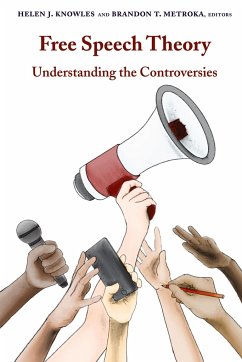
Handbook of Citizenship Studies

PAYBACK Punkte
66 °P sammeln!
'The contributions of Woodiwiss, Lister and Sassen are outstanding but not unrepresentative of the many merits of this excellent collection'- The British Journal of SociologyFrom women's rights, civil rights, and sexual rights for gays and lesbians to disability rights and language rights, we have experienced in the past few decades a major trend in Western nation-states towards new claims for inclusion. This trend has echoed around the world: from the Zapatistas to Chechen and Kurdish nationalists, social and political movements are framing their struggles in the languages of rights and recog...
'The contributions of Woodiwiss, Lister and Sassen are outstanding but not unrepresentative of the many merits of this excellent collection'- The British Journal of Sociology
From women's rights, civil rights, and sexual rights for gays and lesbians to disability rights and language rights, we have experienced in the past few decades a major trend in Western nation-states towards new claims for inclusion. This trend has echoed around the world: from the Zapatistas to Chechen and Kurdish nationalists, social and political movements are framing their struggles in the languages of rights and recognition, and hence, of citizenship.
Citizenship has thus become an increasingly important axis in the social sciences. Social scientists have been rethinking the role of political agent or subject. Not only are the rights and obligations of citizens being redefined, but also what it means to be a citizen has become an issue of central concern.
As the process of globalization produces multiple diasporas, we can expect increasingly complex relationships between homeland and host societies that will make the traditional idea of national citizenship problematic. As societies are forced to manage cultural difference and associated tensions and conflict, there will be changes in the processes by which states allocate citizenship and a differentiation of the category of citizen.
This book constitutes the most authoritative and comprehensive guide to the terrain. Drawing on a wealth of interdisciplinary knowledge, and including some of the leading commentators of the day, it is an essential guide to understanding modern citizenship.
About the editors:
Engin F Isin is Associate Professor of Social Science at York University. His recent works include Being Political: Genealogies of Citizenship (Minnesota, 2002) and, with P K Wood, Citizenship and Identity (Sage, 1999). He is the Managing Editor of Citizenship Studies.
Bryan S Turner is Professor of Sociology at the University of Cambridge. He has written widely on the sociology of citizenship in Citizenship and Capitalism (Unwin Hyman, 1986) and Citizenship and Social Theory (Sage, 1993). He is also the author of The Body and Society (Sage, 1996) and Classical Sociology (Sage, 1999), and has been editor of Citizenship Studies since 1997.
From women's rights, civil rights, and sexual rights for gays and lesbians to disability rights and language rights, we have experienced in the past few decades a major trend in Western nation-states towards new claims for inclusion. This trend has echoed around the world: from the Zapatistas to Chechen and Kurdish nationalists, social and political movements are framing their struggles in the languages of rights and recognition, and hence, of citizenship.
Citizenship has thus become an increasingly important axis in the social sciences. Social scientists have been rethinking the role of political agent or subject. Not only are the rights and obligations of citizens being redefined, but also what it means to be a citizen has become an issue of central concern.
As the process of globalization produces multiple diasporas, we can expect increasingly complex relationships between homeland and host societies that will make the traditional idea of national citizenship problematic. As societies are forced to manage cultural difference and associated tensions and conflict, there will be changes in the processes by which states allocate citizenship and a differentiation of the category of citizen.
This book constitutes the most authoritative and comprehensive guide to the terrain. Drawing on a wealth of interdisciplinary knowledge, and including some of the leading commentators of the day, it is an essential guide to understanding modern citizenship.
About the editors:
Engin F Isin is Associate Professor of Social Science at York University. His recent works include Being Political: Genealogies of Citizenship (Minnesota, 2002) and, with P K Wood, Citizenship and Identity (Sage, 1999). He is the Managing Editor of Citizenship Studies.
Bryan S Turner is Professor of Sociology at the University of Cambridge. He has written widely on the sociology of citizenship in Citizenship and Capitalism (Unwin Hyman, 1986) and Citizenship and Social Theory (Sage, 1993). He is also the author of The Body and Society (Sage, 1996) and Classical Sociology (Sage, 1999), and has been editor of Citizenship Studies since 1997.














